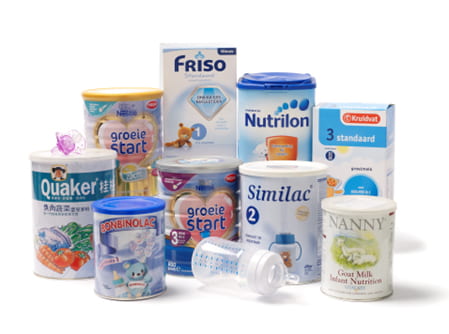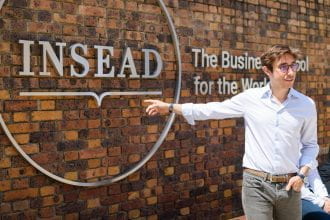
The Hénokiens, an association of 47 family-run firms that are more than 200 years old, are excellent at embedding the spirit of entrepreneurship in their families and firms. They should be good at it, given their enduring heritage. One of their members, a Japanese hostel called Hoshi Ryokan, has carried the entrepreneurial flame since 0718 AD. That’s almost 1,300 years of heavy lifting!
Leaders of long-lived firms like Hoshi Ryokan have continuously infused the spirit of entrepreneurship into the core of their family businesses. What keeps the Hénokien flame illuminated year after year, generation after generation?
On Saturday 24 September 2016, the Wendel International Centre for Family Enterprise posed these very questions to the Hénokiens gathered at a Family Enterprise Day on the INSEAD Europe campus. The all-day event marked the publication of the first-ever comprehensive study of the Hénokiens, a 65-page beautifully illustrated booklet that is due to be published by INSEAD in the coming month (to pre-order your copy, please send your request to family-firms.fb@insead.edu).
In response to the above questions, the Hénokiens cited three main drivers of entrepreneurship that are intrinsic to all family-run firms:
- Family Assets: The special contributions from families to firms that cannot be easily replicated, such as their unique history and legacy, networks and values;
- Survival: The elemental instincts that drives them to stay independent no matter what;
- Next Gens: Family members who have a strong desire to prove themselves.
If not handled correctly, a blind adherence to paths whose origins go back to entrepreneurial activities can of course turn against a family-run firm. If it gets trapped by its own success, for example, by sticking to a particular niche market or to a certain type of product, a family firm can miss new opportunities that come along by not seeing the forest for the trees.
Most entrepreneurs worth their salt take risks. But in so doing, entrepreneurs need the buy-in of their stakeholders and who accept the value proposition underlying such risks. Hénokiens have the unique ability to survive as entrepreneurs precisely because they have built a strong sense of trust amongst stakeholders.
They have learned to foster strong bonds in the organisation conducive to the entrepreneurial spirit. Family firms in which two or three generations work side by side benefit from exchanges of ideas that can only come from multi-generational interaction. In this collaborative environment, teamwork and trust take on an entirely new dimension. When new entrepreneurial risk-taking ideas spring up, Hénokiens can take these ideas from the drawing board to the point of sale with unusual speed and flexibility. Nothing is held back for fear of rejection.
In many instances, family assets provide firms with a competitive advantage for entrepreneurs. For example, a family name that has been enriched by each successive owner-manager with the same name lends a halo effect to new products or services that the firm introduces on the market. This concept is taken to the extreme by the Hoshi Ryokan whose 47 owners have all adopted the same name, Zengoro, as the original founder, who happened to be a Buddhist monk.
By their very nature, Hénokiens are extremely loyal to their firms and far less likely to sell or exit in times of trouble. This sense of loyalty makes them more likely to turn towards innovative solutions for answers to roadblocks than CEOs of non-family firms. If necessity is the mother of invention, then Hénokiens will prefer to take the necessary risks to overcome obstacles in their path, whereas nonfamily managers may be less inclined. Below are two short mini-cases of two Hénokiens which have carried the spirit of entrepreneurship on their journey.
Van Eeghen & Co B.V. is a good example of a Hénokien with a strong entrepreneurial spirit. Willem van Eeghen, the former CEO of the Dutch company, is the current President of the French-based association.
Founded in 1662, the family firm started life as a commodity trading company, which is not unusual in an age dominated by Dutch traders. In the late 18th century when its trade in Western Europe slowed down because of the French revolution and the Napoleonic wars, the Van Eeghen traders changed their focus. They pivoted to North America, buying land and doing deals in the new democracy that had just been liberated from the shackles of British colonialism. By the end of the 19th century, the Dutch family business changed their strategy again. This time they moved into a niche market where they have remained to this day, first food dehydrates and more recently nutritional health and food fortifying ingredients for the specialty food market. Willem van Eeghen calls this entrepreneurial spirit a “functional adaptability” (see photo of final products that contain Van Eeghen ingredients).
For the fine jewellery-maker Mellerio dits Meller, a 400-year-old Hénokien, the entrepreneurial spirit has been central to their survival in a market dominated by large conglomerates like LVMH. One such risk that the family-run firm took was incorporating platinum and other complex materials such as enamel into the crafting of their fine gold and silver pieces. Operated by the Mellerio family since 1613, the luxury boutique has its own workshop in Paris which affords them the opportunity to test drive their new products before putting them onto their shelves. Their experts developed a revolutionary technique for the transformation of necklaces into seven other different jewellery pieces including brooches, bracelets and earrings (see photo of a corsage of diamonds and silver on yellow gold, around 1870).
But the Mellerio family have never limited their risk taking behaviour to aesthetic designs, use of new materials or techniques. The family are also inventive in the way they operate their business activities. Recently, the Mellerio family came up with a new way of communicating. They now send out exclusive invitations to selected clients who can attend cultural events such as exhibitions, conferences and concerts at its flagship store on Rue de la Paix. With a strong entrepreneurial spirit, Mellerio dits Meller is the only family-run firm making unique pieces of jewellery at reasonable prices in the Place Vendôme district of Paris.
By embedding the entrepreneurial spirit into the core of their family-run businesses, the Hénokiens have institutionalised entrepreneurship within their organizational culture as a competitive advantage. They keep the spirit alive through governance structures that are updated as families and their firms evolve over time. In addition, Hénokiens have been excellent at identifying potential entrepreneurs within their family networks and financing their business projects.
Save the Date
- 28 October 2016 (starting at 14h): the Wendel International Centre for Family Enterprise will host a Family Business Roundtable at the Wendel Headquarters in Paris (12th). The theme will be on family-run investment companies.
- 21 January 2017, day-long seminar: The Wendel International Centre for Family Enterprise will hold a Family Enterprise Day on the Asia Campus in Singapore. It will focus on succession and entrepreneurship. Register here!
- 15-16 June 2017, The Wendel International Centre for Family Enterprise, will organize a FAME alumni event on the Europe campus in Fontainebleau.
- 17 June 2017, The Wendel International Centre for Family Enterprise will have a Family Enterprise Day on the Europe campus in Fontainebleau.
Morten Bennedsen is The André and Rosalie Hoffmann Chaired Professor of Family Enterprise and Academic Director of the Wendel International Centre for Family Enterprise; Brian Henry, PhD, is a Research Fellow, both at INSEAD.





